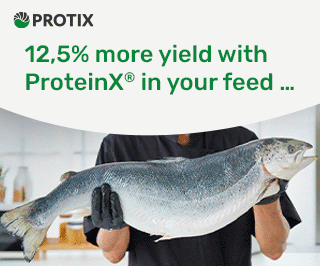Canada’s Minister of Fisheries and Oceans (DFO) Joyce Murray has toured salmon farms in British Columbia as the process to move the industry away from open-net pen farming continues, but the industry is concerned about the rushed timeline the minister has set for developing a transition plan.
Murray’s meeting with British Columbia salmon farmers and touring their farms was a long time coming. The visit was part of the process to hash out how the “transition” of the industry away from open-net pen farming would look like.
The salmon farmers had hoped for Murray to visit the farms before the federal government finalized its decision to move British Columbia away from open-net pen salmon farming.
Read also: BC’s 79 farmed salmon licenses renewed for two years
They wanted Murray to see how today’s farmed salmon industry is very different from the industry of years ago. They wanted her to see for herself the investments in innovations that the industry has put in through the years.
Finally that time has arrived. Murray toured several salmon farming facilities across Vancouver Island last week, the BC Salmon Farmers Association (BCSFA) announced on Tuesday.
Meetings productive, but…
The meetings were productive, the association said.
“It was a pleasure to meet with the Minister and her team to not only discuss these improvements but showcase them, as she visited several farm sites and a hatchery,” says Ruth Salmon, interim executive director of the BCSFA.
While the association is pleased Murray is seeking to work with the industry to support the development of the Transition Framework, it said the short time frame set for consultations on the farmed salmon production areas in the Discovery Islands region are of particular concern.
The production areas in the Discovery Islands region are within the territories of the Laich-kwil-tach First Nation. All 11 farms in the Discovery Islands region are now gone.
“The farms in these areas are critical to the future of the sector as well as to those First Nations who view salmon farming as a means to socio-economic stability for their communities. Given the importance of the production areas within the Laich-kwil-tach territories, our sector stresses the importance of those First Nations to be integrated into the larger discussion of the Transition Plan, instead of being addressed as a separate region,” said Salmon.
First Nations participation
In an interview with this journalist in March, Murray says she is cognizant that there are Indigenous communities that rely on the farmed salmon industry across Canada. This is why, she said, it is a high priority for her and the Canadian government to work “in direct partnership with Indigenous communities to make decisions, to outline programs to involve Indigenous people in the judgment of the resource and allocation of the resource.”
“This is a very central relationship which I take very seriously,” said Murray.
“And the reason we are putting together a responsible plan is that we want to take the human element, of course, into consideration. Indigenous communities are involved with salmon open net-pen aquaculture. We’ve been in constant consultation with them.”
Murray said she looks forward to seeing a transition that ultimately creates more opportunity for Indigenous communities and “makes British Columbia a beacon of responsible sustainable salmon aquaculture development.”
The discussion framework for a BC aquaculture open-net pen transition plan is open for public input until October 27, 2022.



